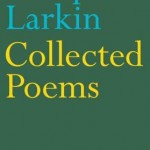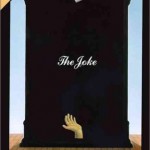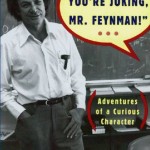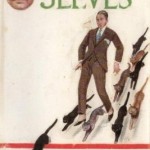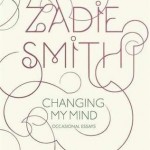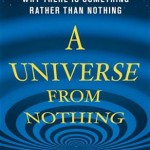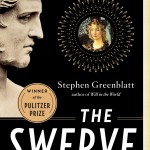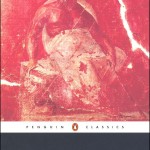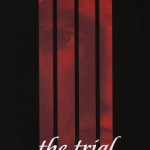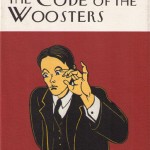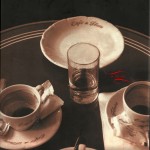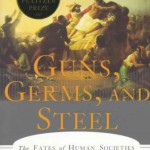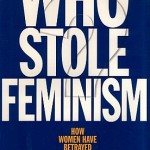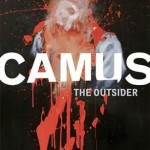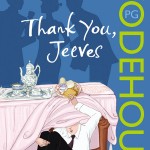Larkin is the most beloved English poet of the post-war era and a major influence on a wide community of writers, in prose and verse, on both sides of the Atlantic. Reading his Collected Poems, comprising his four publications The North Ship […]
Milan Kundera’s The Joke
First, an apposite quotation from Christopher Hitchens: “The struggle for a free intelligence has always been a struggle between the ironic and the literal mind.” The free intelligence (in truth, a tautology, but a useful one nonetheless) admits of no […]
Richard Feynman’s Surely You’re Joking, Mr. Feynman!
Richard Feynman was America’s best-known theoretical physicist, a Nobel laureate and, according to a 1999 poll of 100 of the world’s most highly esteemed scientists, one of the ten greatest physicists to ever live. It is difficult to comprehend intellect […]
P.G. Wodehouse’s The Inimitable Jeeves
Wodehouse’s The Inimitable Jeeves, less a novel than a group of chronologically-linked short stories cobbled together into a coherent whole, is the third Wodehouse work I have read thus far, and the final in my particular compendium of Wodehouse’s “Jeeves stories.” […]
Zadie Smith’s Changing My Mind
I am embarrassingly late to the works of Zadie Smith, having associated her with a younger generation of writers the literati seemed overly eager to promote. But then I read her essay on Kafka for the New York Review of Books, […]
Lawrence Krauss’ A Universe From Nothing
Nothing induces humility quite like grappling with theoretical physics. Richard Dawkins and some of his contemporaries in the fields of biology and evolutionary psychology posit that our brains evolved to contemplate numbers on a much smaller scale than is required for […]
Stephen Greenblatt’s The Swerve
Stephen Greenblatt is a professor of literature at Harvard University, bestselling author of the fictionalized biography of Shakespeare Will in the World, and one of the founders of New Historicism – something for which I have yet to forgive him. But […]
Plato’s The Last Days of Socrates
In the darker days of my youth, when every aspect of life was infused with undue urgency, I found consolation in a quotation from Socrates: “The unexamined life is not worth living.” It became a kind of personal mantra, something […]
Franz Kafka’s The Trial
George Steiner, at 83 still one of our best literary critics, articulates my primary difficulty in writing this post in the very first sentence of his Introduction: “The thought that there is anything fresh to be said of Franz Kafka’s The […]
P.G. Wodehouse’s The Code of the Woosters
It is to Richard Dawkins, Stephen Fry and Christopher Hitchens – my beloved British triumvirate – that I owe my newfound love of P.G. Wodehouse. The Code of the Woosters, published in late 1938 mere months before the beginning of World […]
Saul Bellow’s Ravelstein
This is my first (long overdue) foray into Bellow’s works, and as such is something of an odd starting point: Ravelstein is less a work of fiction than a memoir, a small glimpse into Bellow’s friendship with renowned scholar and philosopher Allan […]
Jared Diamond’s Guns, Germs and Steel
A quick glance at Jared Diamond’s fields of expertise will give you some idea of what you are in store for when you read him: physiology, biology, ornithology, environmentalism, history, ecology, geography and anthropology. And a good thing, too, that his […]
Christina Hoff Sommers’ Who Stole Feminism?
The more I read and learn about academic feminism, the stronger my conviction grows that no greater or more pernicious fraud has been perpetrated on Western thought in the last 50 years. Partisan hackery masquerading as scholarship, vast echo chambers […]
Albert Camus’ The Outsider
Albert Camus was a French Algerian writer and philosopher whose political career is perhaps best described as polarizing. He began World War II as a pacifist and ended it as a member of the French resistance group Combat, which published […]
P.G. Wodehouse’s Thank You, Jeeves
In interviews with Stephen Fry and Richard Dawkins, when both men were asked to reflect on their friendship with Christopher Hitchens, they cited a mutual love for the works of P.G. Wodehouse that expedited their friendship and gave them something […]
